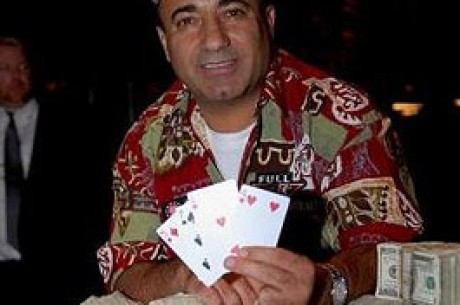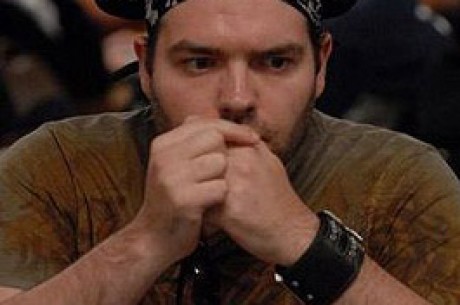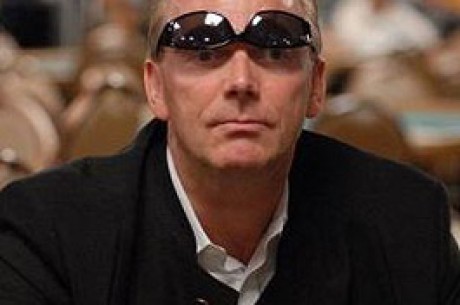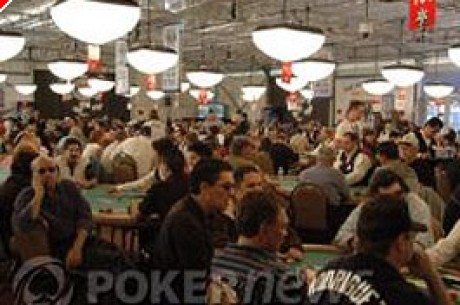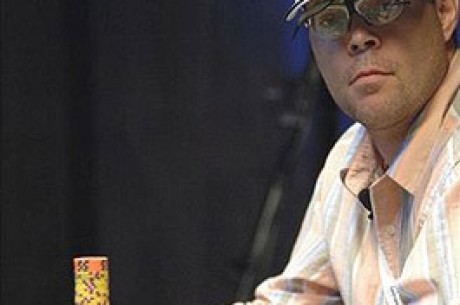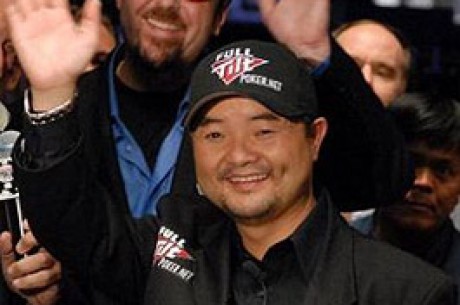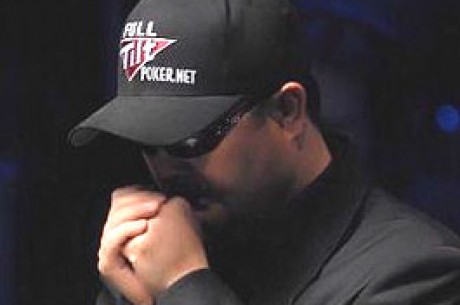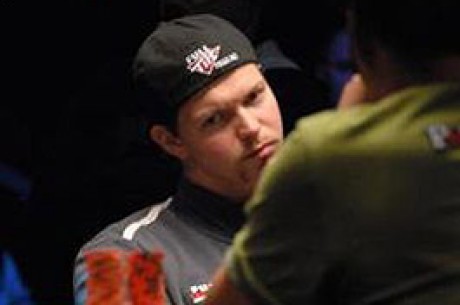WSOP Stories: Getting Ready for the WSOP
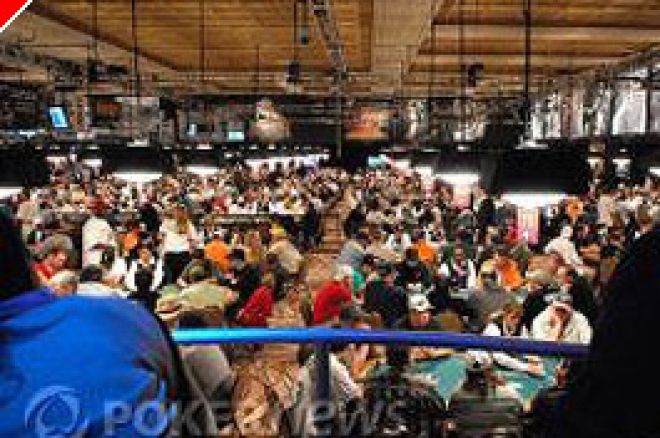
[Ed. note: This piece appears in lieu of Ashley's normal weekly strategy column.]
I'm not Doyle, Phil, Chip, or Johnny – not even close. For them the World Series of Poker is a matter of business. For me it is a major poker adventure.
Just so we're clear, I'm no neophyte; I've been around. I've played in many tournaments and cash games in my 15 years as a serious poker player. I've taken down my share of the money in the relatively small tournaments and mid-limit cash games I've competed in over the years. I've even played in large tournaments with the greats of the game. I just haven't done very well in any of those tournaments.
Even so, being a dreamer and looking for an interesting experience to share with you and to tell my grandchildren about, I will go out for one week to Las Vegas and play in the World Series of Poker. I will play in the $1,000 S.H.O.E. event, not the $10,000 Main Event. I figure that I have an advantage over the field in the "S" and "É" events (Stud and Stud Hi/Low Eight or Better). And I can hold my own in limit hold'em and limit Omaha-8.
Friends and fellow poker players always ask me why I don't play in the Main Event, the $10,000 buy-in no limit hold 'em event that's televised and that most people think of when they think of the World Series of Poker. I'll write an entire article sometime about the answer to that question. But for now, leave it to say that I don't think the very long odds for me justify the large sum of money (for me) that I'd have to put at risk.
So my goals are more modest. But that doesn't make them any less real for me. If anything, I take the S.H.O.E. tournament more seriously than most take the $10,000 Main Event – if only because I see that at least finishing in the money is a realistic goal in this relatively small WSOP tournament. Sure, it's a long shot. But at least it's the WSOP event with the best odds for me.
As I stress in my books Winning 7-Card Stud and Winning Low Limit No Limit Hold 'em, one of the keys to playing winning poker is preparation. I'm preparing now by doing a few things to get ready. I recommend them to you before your next trip to Las Vegas or some other distant poker destination. I recommend them to you before you travel to a major tournament. I'll let you know how they worked when I return. For now, I'll share my plan.
For one thing, I did not make reservations for the Rio, where the World Series of Poker is played, nor at any other casino with a poker room. I figure that I'll have a hard enough time sleeping as it is – with the Las Vegas-induced adrenaline pumping into my blood system. Instead, I booked a room at the capacious Extended Stay America – somewhat off the beaten track, with quiet rooms, little road noise, and no casino, lounge, or stage shows to keep me up at night when I should be getting a good night's rest. And rest is important. I have to be at my best to give myself a shot at the best in the poker world. Why start with the disadvantage of sleep deprivation?
The room is equipped with a kitchen, including a stove, microwave, and refrigerator. This allows me the option of cooking for myself – rather than eating the fat- and alt-laden meals I'm apt to eat in restaurants. It also allows me to save money – preserving my bankroll for more important things like playing in side games during my stay.
(By the way, I booked my room on hotwire.com. By some miraculous piece of serendipity I managed to get what is normally a $120/night two-room suite for only $37.99 a night – including my Saturday-night stay. If you haven't used hotwire.com I recommend it highly.)
My S.H.O.E. tournament is Monday at noon. I decided to fly in Saturday, leaving myself a full day to settle in and recover from my six-hour flight from Boston. This helps with the sleeping. But it also helps make sure that I can be properly fed, hydrated, exercised, and relaxed in time for the noon game.
I realize, of course, that true professionals who live on the tournament trail most of the year probably don't have to go through such elaborate preparation to play at their best. But they're well conditioned for the schedule of long hours, little sleep, travel, and the like. I'm not. Pretending to be a serious tournament competitor doesn't give me anything but a disadvantage. I recognize my limitations and try to do everything in my power to compensate for them in whatever small ways that I can.
As far as getting my game in shape, I've spent the last few weeks playing rotation cash games, tournaments, and sit-and-goes on line. It's not the same as playing live, of course – but it is good practice in many respects. It has forced me to think strategically about all four of the games I'll be playing: Stud, Limit Hold'em, Omaha-8, and Stud-8. The online play has simulated hundreds more hands than I could possibly play at Foxwoods, the casino nearest my house. And the casino doesn't have any Stud-8 or Omaha-8 games to practice in, anyway. PokerStars does, though. So that's where I've been.
I've also been reading. The Sklansky/Malmuth Stud-8/Omaha-8 book isn't about tournaments. And the strategy doesn't frankly suit most of the loose games I find, when I find them. But it surely has helped me just to read their strategy considerations – if only to get my mind to wrap itself around some strategic finer points of those games. I've been doing the same thing with Sklansky's hold'em book for advanced players. Just familiarizing myself again with his method of thinking through hand situations in a limit hold'em game – a game I rarely play – can only help me. At least that's how I view it.
I've also scheduled one long and late session at Foxwoods – for one night a few days before I leave. I see it as a long run before the race. I don't do well sitting for long periods of time. I'm normally very fidgety – and adjust by playing in short bursts of time rather than in long sessions. I figure this will be a small bit of ass- and mind-training — conditioning myself to the sometimes physically taxing chore of a long tournament day.
I know that I can't become a top-tier tournament player with only a few weeks or even a few months of getting ready. But to me it's like the decision I've had to make as a poker player after a late-night session. Do I stay up all night or do I get that one hour of sleep I can slip in before I have to start my day? The answer was not always apparent to me – but now it is. When I was in college I'd often go for the all-nighter – figuring that it wasn't worth it to try and sleep for only an hour. What would be the point?
But as I've gotten older and wiser, I now know that even that slim hour of sleep is infinitely better than trying to get by with absolutely no sleep. Of course a full night's sleep is best. But if not, even a single hour is better than nothing.
And so I have done my best during these past few weeks to prepare as best I can.
I may not be able to outplay Greg Raymer, Barry Greenstein, or Annie Duke. But by God, I can surely do better at getting the proper rest and diet! I'll let you know how this regime helped or hurt when I get back. Until then, wish me luck!
P.S. If any of you are out in Las Vegas during this year's WSOP please feel free to stop by and look me up. I'm always happy to say hello to the many great PokerNews readers.

